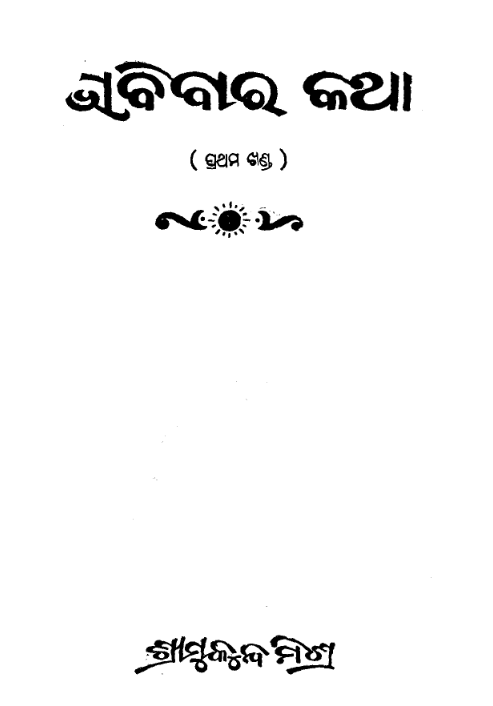Published in 1968, Bhabibara Katha by Mukunda Misra is a significant essay that delves into the concept of future vision, encapsulating the aspirations, challenges, and philosophical reflections concerning the trajectory of humanity and society. The title translates to “The Story of the Future,” hinting at the essay’s exploration of possibilities that lie ahead and how individuals can navigate the complexities of life while envisioning a better tomorrow. Misra’s insightful prose encourages readers to reflect on their role in shaping the future and emphasizes the importance of hope and proactive engagement.
At its core, Bhabibara Katha challenges the readers to think critically about the present and how it influences the future. Misra articulates the interconnectedness of past, present, and future, emphasizing that our actions today will inevitably shape the world of tomorrow. He adeptly examines historical contexts, illustrating how societal transformations, cultural shifts, and technological advancements have paved the way for new possibilities. By analyzing these dynamics, Misra compels readers to recognize the cyclical nature of history and the likelihood of repeating both successes and mistakes if lessons are not learned.
One of the most compelling aspects of the essay is Misra’s optimistic perspective on the potential of human beings to create change. He writes passionately about the power of education, awareness, and collective action in bringing about a brighter future. Misra believes that societies can evolve through thoughtful deliberation and collaboration, urging individuals to engage in fostering dialogue and developing critical thinking skills. His call for proactive engagement resonates strongly, advocating for responsibility in citizenship and the pursuit of knowledge as tools for progress.
Misra also addresses the uncertainties associated with envisioning the future. He acknowledges that while one can dream and aspire, the path to fulfillment is often fraught with challenges. He discusses the importance of resilience and adaptability in overcoming obstacles, positing that human ingenuity can rise above adversity. This perspective adds depth to the essay, as it speaks to the realities of life where optimism must be balanced with pragmatism.
A significant theme in Bhabibara Katha is the role of youth in shaping the future. Misra places great faith in the vitality and creativity of younger generations. He emphasizes their unique position to challenge the status quo and drive social and cultural change. Through engaging narratives and examples, he illustrates the potential within youth to lead transformative movements that can redefine societal norms and values. This aspect resonates well in contemporary contexts, as it underscores the importance of empowering young voices to contribute actively to shaping their destinies.
Moreover, Misra’s writing style is marked by a lyrical quality that invites readers to engage deeply with the content. His use of metaphors, vivid imagery, and philosophical reflections adds richness to the reading experience, making complex ideas accessible. The essay is not just a theoretical discourse; it is an emotional exploration that prompts readers to reflect on their aspirations and the contributions they can make to society.
Books Info
| Books name | Bhabibara Katha / ଭାବିବାର କଥା |
| Author | Mukunda Misra |
| No Of pages | 91 |
| Publisher | Smt. Labanyabati Devi |
| Publication | 1968 |
| Printed At | NA |
| Distributor | NA |

